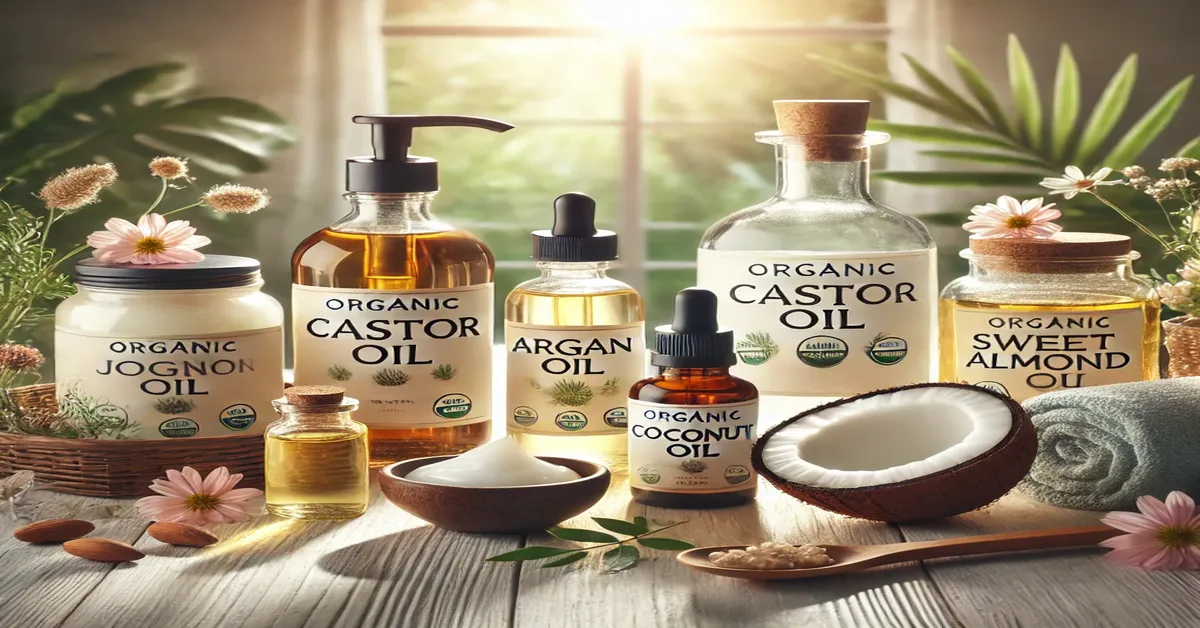Organic castor oil has been a staple in beauty and health regimens for centuries, known for its numerous benefits, including moisturizing the skin, promoting hair growth, and soothing joint pain. However, as the natural products market continues to evolve, many people are searching for alternatives to castor oil, whether due to personal preference, allergic reactions, organic castor oil replacement or ethical reasons. In this article, we will explore a range of organic castor oil replacements that offer similar benefits, the reasons you might opt for a replacement, and how these alternatives can be incorporated into your beauty and health routine.
1. Introduction to Organic Castor Oil
Castor oil is extracted from the seeds of the Ricinus communis plant, primarily grown in tropical regions. For centuries, it has been valued for its ability to treat various ailments and improve hair and skin health. Organic castor oil, in particular, is highly sought after because it is free from harmful chemicals and pesticides, making it a popular choice for health-conscious organic castor oil replacement individuals. Its benefits range from providing deep hydration to promoting faster hair growth due to its high content of ricinoleic acid, a fatty acid known for its moisturizing and anti-inflammatory properties.
2. Why Consider Replacing Castor Oil?
While castor oil remains a favorite in natural beauty and wellness circles, there are several reasons why people may choose to explore alternatives:
- Allergic Reactions: Some individuals experience skin sensitivity or allergic reactions to castor oil, leading to the search for milder alternatives.
- Ethical Considerations: Castor oil production can sometimes involve practices that are not eco-friendly or ethical. For individuals focused on sustainability, organic replacements might be more appealing.
- Texture and Absorption: Castor oil is thicker and stickier than many other oils, which can be a drawback for those who prefer a lighter texture that organic castor oil replacement absorbs quickly into the skin or hair.
- Sourcing Issues: Depending on where you live, high-quality organic castor oil may be harder to find or more expensive than other oils.
These concerns can prompt individuals to look for organic oil replacements that offer similar benefits while addressing their specific needs.
3. Top Organic Castor Oil Replacements
There are several organic oils that serve as excellent replacements for castor oil. Each of these alternatives brings its unique set of benefits to the table, allowing organic castor oil replacement you to choose the right oil based on your specific goals, be it hair care, skincare, or therapeutic applications.
1.1. Jojoba Oil
Jojoba oil is an excellent castor oil replacement due to its composition, which closely resembles the natural oils produced by our skin. This makes it a fantastic moisturizer for both the face and body. Jojoba oil is non-comedogenic, meaning it won’t clog pores, making it a popular choice for people with acne-prone or sensitive skin. It also helps balance oil production, organic castor oil replacement making it suitable for both dry and oily skin types.
Benefits of Jojoba Oil:
- Deeply moisturizes without leaving a greasy residue.
- Helps balance sebum production in the skin.
- Suitable for all skin types, including sensitive skin.
- Can help reduce acne and other skin irritations.
1.2. Argan Oil
Argan oil is known as “liquid gold” due to its high vitamin E content and fatty acids that deeply nourish the skin and hair. It is lightweight and quickly absorbs into the skin, making it an excellent choice for people who want the benefits of hydration without the organic castor oil replacement heaviness of castor oil. It’s especially favored for hair treatments, helping to smooth frizz and boost shine.
Benefits of Argan Oil:
- Rich in antioxidants that protect and heal the skin.
- Strengthens hair and reduces frizz.
- Absorbs quickly without leaving an oily residue.
- Can help reduce signs of aging, such as fine lines and wrinkles.
1.3. Coconut Oil
Coconut oil is one of the most popular oils used in beauty routines, thanks to its moisturizing and anti-bacterial properties. For individuals seeking an alternative to castor oil in their hair and skincare regimen, organic coconut oil offers similar benefits with a more pleasant scent and texture. It is especially effective for deep conditioning treatments and treating dry or flaky skin.
Benefits of Coconut Oil:
- Provides deep hydration to both skin and hair.
- Contains anti-bacterial and anti-fungal properties.
- Ideal for treating dandruff and scalp conditions.
- Works well as a makeup remover and overall moisturizer.
1.4. Sweet Almond Oil
Sweet almond oil is another lightweight oil that serves as a fantastic replacement for castor oil. It is rich in vitamins A, E, and fatty acids, which help soften the skin and promote a glowing complexion. Sweet almond oil is gentle enough for use on the face and body, organic castor oil replacement and it’s particularly beneficial for soothing dry, irritated skin.
Benefits of Sweet Almond Oil:
- Softens skin and reduces the appearance of fine lines.
- Helps reduce dark circles and puffiness under the eyes.
- Excellent for soothing eczema and psoriasis.
- Absorbs quickly and is non-greasy.
1.5. Olive Oil
Olive oil is well known for its versatility in both cooking and beauty applications. Its rich content of vitamins E and K, along with antioxidants, makes it a good replacement for castor oil when moisturizing and nourishing the skin. Olive oil’s anti-inflammatory properties are also beneficial for those with sensitive or irritated skin.
Benefits of Olive Oil:
- Rich in antioxidants that fight free radicals.
- Deeply hydrates dry skin and scalp.
- Can help reduce inflammation and irritation.
- Works well as a natural makeup remover.
1.6. Avocado Oil
Avocado oil is a nutrient-dense oil rich in vitamins A, D, and E, as well as healthy fats. It is heavier than some other oils, making it a great option for those with organic castor oil replacement dry or aging skin. Avocado oil also penetrates the hair shaft deeply, making it an excellent replacement for castor oil in hair masks and treatments.
Benefits of Avocado Oil:
- Provides deep hydration and nourishment to dry skin.
- Helps boost collagen production.
- Protects skin from environmental damage.
- Strengthens hair and promotes shine.
1.7. Hemp Seed Oil
Hemp seed oil is packed with essential fatty acids, making it a great choice for moisturizing the skin and balancing oil production. Its anti-inflammatory properties also make it an excellent option for people with sensitive skin, acne, or other inflammatory skin conditions. Hemp seed oil is lighter than castor oil, making it a suitable alternative for daily use.
Benefits of Hemp Seed Oil:
- Balances oil production in the skin.
- Reduces inflammation and soothes irritated skin.
- Rich in omega-3 and omega-6 fatty acids.
- Promotes hair growth and strengthens the scalp.
1.8. Grapeseed Oil
Grapeseed oil is lightweight and absorbs quickly, making it an excellent alternative to castor oil for people with oily or combination skin. It is high in organic castor oil replacement antioxidants, vitamins, and minerals that help protect and rejuvenate the skin. Grapeseed oil is also an effective carrier oil, meaning it blends well with essential oils for added benefits.
Benefits of Grapeseed Oil:
- Lightweight and easily absorbed by the skin.
- Rich in antioxidants that protect and repair the skin.
- Reduces the appearance of scars and stretch marks.
- Helps control acne and oil production.
4. How to Choose the Best Castor Oil Replacement
When choosing a replacement for organic castor oil, it’s essential to consider several factors:
- Skin Type: Oils such as jojoba and grapeseed are great for oily and acne-prone skin, while avocado and olive oil are better suited for dry or aging skin.
- Texture Preference: Some people prefer lightweight oils that absorb quickly, such as argan or hemp seed oil, while others may enjoy the richer, more emollient feel of coconut or avocado oil.
- Purpose: If you are replacing castor oil for hair care, oils like argan and coconut are ideal, while for skincare, you may prefer jojoba or sweet almond oil.
5. Organic Castor Oil Replacements for Specific Uses
5.1. Hair Growth
If you’re seeking a replacement for castor oil to stimulate hair growth, consider using oils that are rich in nutrients and have proven benefits for hair health. Argan oil and coconut oil are two excellent options that can promote hair growth, reduce frizz, and improve overall hair texture.
5.2. Skin Moisturization
For deep skin moisturization, oils like jojoba, sweet almond, and olive oil provide long-lasting hydration without clogging pores. These oils are perfect for everyday use and can help soothe dry, irritated skin while improving
texture and tone.
5.3. Anti-Inflammatory Purposes
If you are looking for an alternative to castor oil for its anti-inflammatory properties, hemp seed oil and avocado oil are excellent choices. Both oils are rich in essential fatty acids and antioxidants that help reduce inflammation, making them suitable for people with acne, eczema, or psoriasis.
6. Ethical and Environmental Considerations
One of the reasons people may opt for organic castor oil replacements is the growing awareness of sustainability and ethical production practices. Many organic oils, such as argan and jojoba oil, are harvested using sustainable practices that benefit the local organic castor oil replacement communities. When selecting an alternative oil, look for certifications such as USDA Organic, Fair Trade, or certifications from ethical farming organizations to ensure your oil is produced in an environmentally friendly way.
7. Incorporating Organic Oil Replacements into Your Routine
The best way to incorporate organic oil replacements into your routine is to use them as needed for specific purposes, such as moisturizing after a shower, using them in DIY hair masks, or applying them to areas of dry skin. Oils can also be blended with essential organic castor oil replacement oils for added benefits. Remember to always patch-test a new oil to ensure it suits your skin or hair type.
8. Conclusion
Organic castor oil replacements offer a wide range of benefits for those seeking alternatives for hair and skin care. Whether you prefer a lightweight oil like jojoba or a deeply nourishing oil like avocado, there is an organic replacement that fits your needs. By understanding organic castor oil replacement the properties of each oil and selecting one based on your specific goals, you can continue to enjoy the natural benefits of oils without compromising on quality or effectiveness.
FAQs
- What is the best replacement for castor oil for hair growth? Argan oil and coconut oil are excellent alternatives for promoting hair growth, reducing frizz, and improving hair texture.
- Can I use jojoba oil instead of castor oil for acne-prone skin? Yes, jojoba oil is a fantastic option for acne-prone skin as it helps balance oil production without clogging pores.
- Is sweet almond oil suitable for sensitive skin? Sweet almond oil is organic castor oil replacement gentle and soothing, making it a good choice for sensitive or irritated skin.
- How often should I apply avocado oil to my hair? Avocado oil can be applied to the hair once or twice a week, especially if used in deep conditioning treatments.
- Are these organic oil replacements suitable for all skin types? Yes, each oil has specific properties that cater to different skin types, from organic castor oil replacement oily to dry. It’s essential to choose the one that best suits your skin.
- Can I mix different oils together to enhance their benefits? Absolutely!







